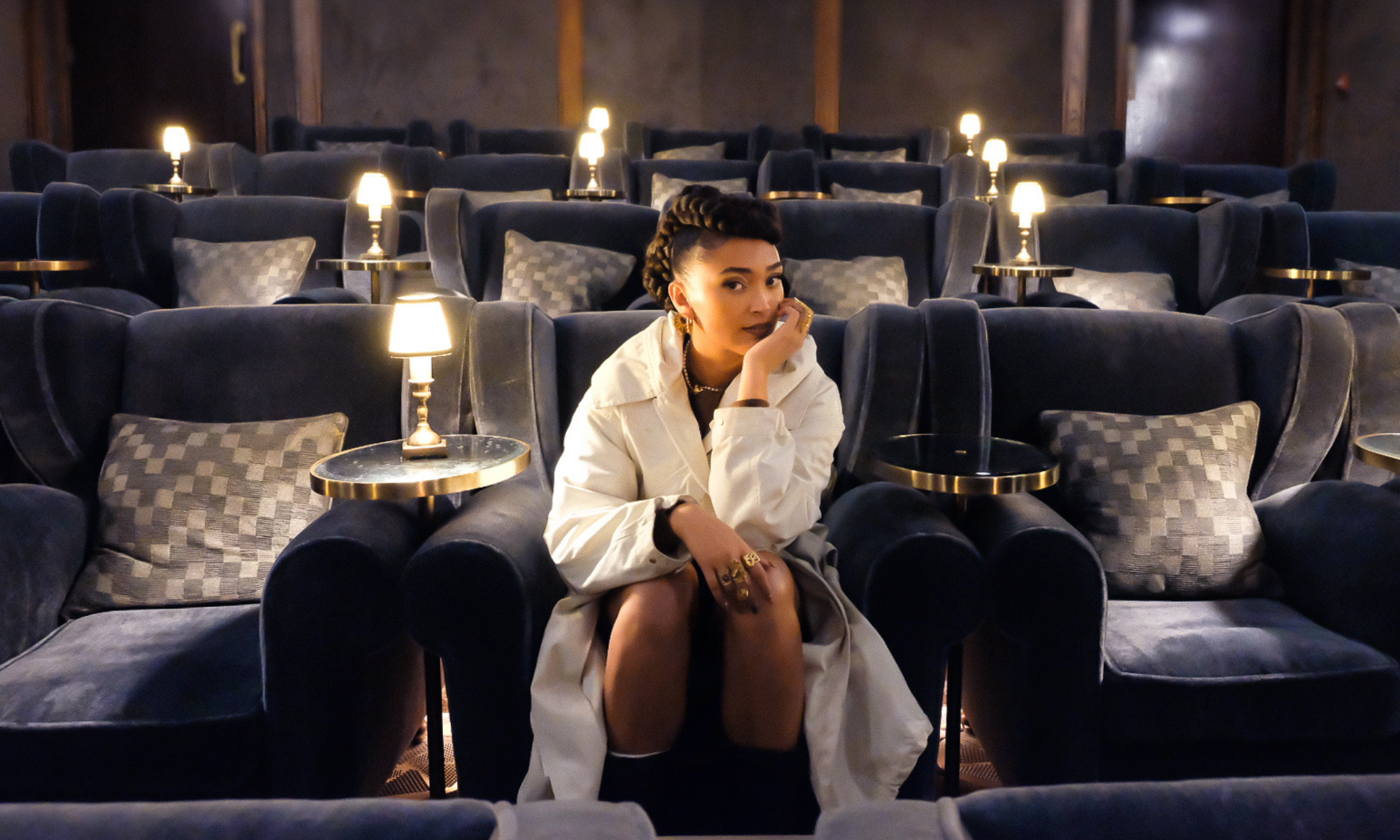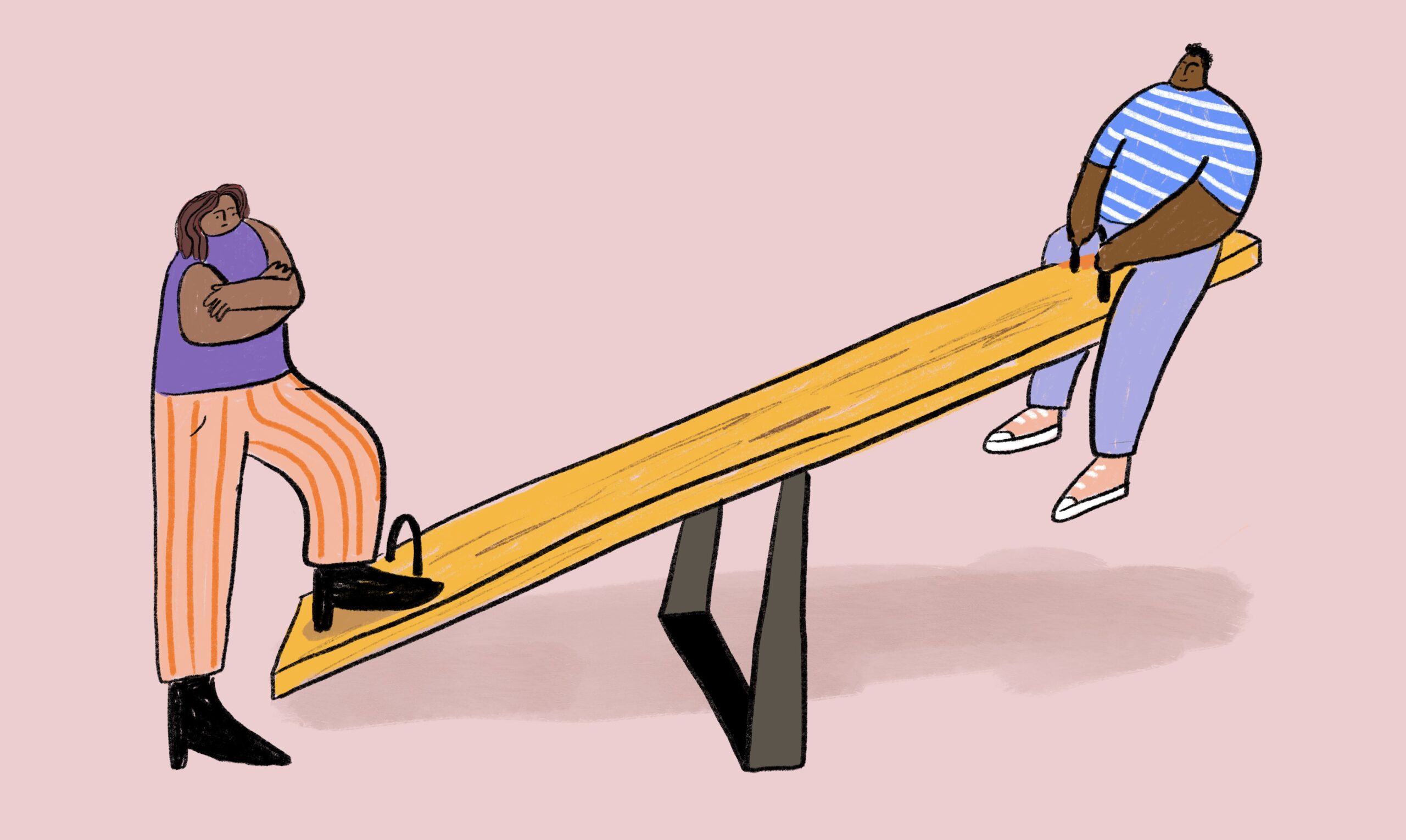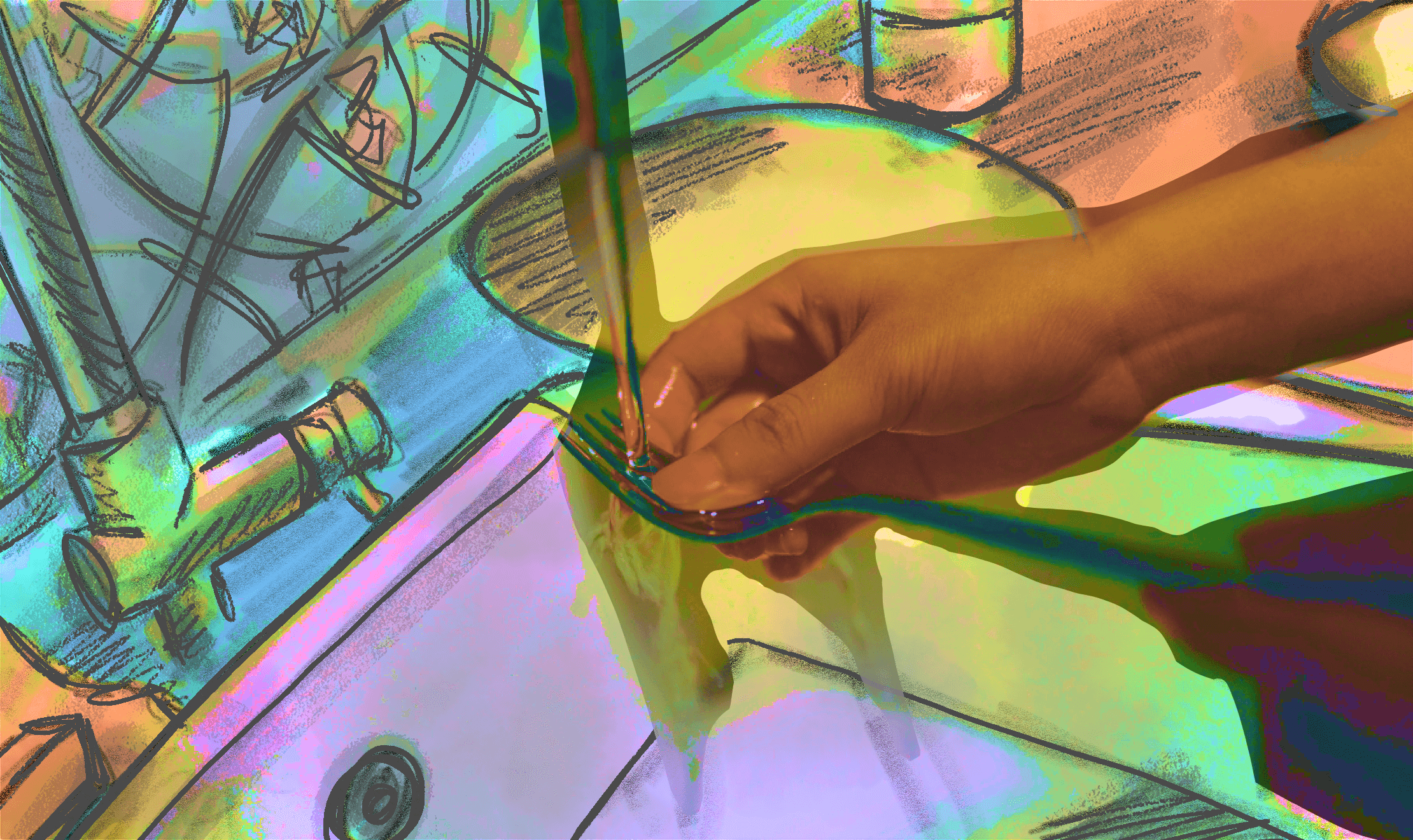
I didn’t acknowledge the richness of my complexion until my little brother pointed it out one day. I was online looking at some pictures on Tumblr, and I commented on how dark a model was. He shrugged and said “We’re dark too you know.” This took me by surprise because he was wrong. I zoomed into the photo and tried to show him that clearly we weren’t that dark-skinned but again, he disagreed.
I only became aware of the whole “light-skin vs dark-skin” narrative when I got to university. I moved to London, the melting pot of cultures, the city of rainbow faces. I was born and raised in Newcastle, and my hometown does somewhat lack in diversity. I grew up not having any black friends at all, and this subtly took its toll on my self-confidence in ways that I can only see and understand retrospectively. Apart from my wonderful mum, I had very few older black women to look up to in Newcastle, especially of my own age group. My beauty ideals were moulded by what surrounded me: caucasian girls, with their long beautiful hair, and petite noses.
In my little microcosm, I subconsciously subscribed to those same eurocentric beauty ideals that are celebrated in wider society. Beauty may be in the eye of the beholder, but that eye beholds features that some of us will never be “blessed” with. Because I was always the only black pupil in my classes at school, I failed to understand that the width of my nose reflected my unique ethnicity rather than bad luck. I failed to see the beauty in the kink of my hair, because I couldn’t see other black girls around me who had the same texture crowning their face.
“I clicked with my black peers in a way that only friends with a bond built on a foundation of cultural harmony will understand”
When I moved to London I was welcomed into a diverse community of students from all different backgrounds and cultures. Most excitingly, I finally made friends with black people my age. Being able to speak to girls who knew the struggle of shrinkage, taming edges and being ashy was food to my soul. I clicked with my black peers in a way that only friends with a bond built on a foundation of cultural harmony will understand.
However, with this newfound sense of black unity, my eyes were fully opened to the concept of colourism and value being correlated with the shade of your skin. When I read tweets and social media posts, although I knew I wasn’t quite lucky enough to make “#teamlightskin”, I chose to believe that I belonged comfortably within the central part of the spectrum, the part that didn’t matter. It is only after that brief conversation with my brother that I realised I actually placed in a less favourable position on the gradient.
I adopted the unhealthy ritual of looking at other black people that I crossed paths with day-to-day (from friends, to peers to total strangers in the street), and mentally comparing my skin-tone to theirs. I taught myself that I was a shade or so darker than most black people I saw, and two shades or three darker than what was considered beautiful by society.
“I’d spend hours putting makeup on and getting ready to go on nights out, just to feel like boys would look straight past me”
Acknowledging that my skin was dark made me feel less beautiful. I’d look at girls lighter than me and wish my skin tone matched theirs. I’d look at girls darker than me, and think “Well at least I’m not as dark as that.” I’d spend hours putting makeup on and getting ready to go on nights out, just to feel like boys would look straight past me, look straight through me, at the white girls and the light girls, the girls that I wasn’t, the girls that I could never be. I used to wish that my dad was lighter and that I’d inherited my mum’s fair tone instead.
I assumed that these thoughts were newly developed, but in hindsight, I can see their ugly presence was peppered throughout my childhood and adolescence. For example, when I grew out of my adoration for the blonde-haired, blue-eyed likes of Jesse McCartney, I began to appreciate black boys, as long as they weren’t too black: definitely no darker than me, and preferably not as dark as me. I could not see that this was a form of self-hate.
I’d been writing diary entries since I was eight years old and not once had I addressed the struggles of being the only black girl I knew. I couldn’t face my own dark demons. I was shielding myself from myself. I internalised those feelings for so many years because I was too scared and alone to externalise them; I felt that I had no outlet. I’d been hiding from the sun for years, literally and metaphorically.
But now I seek the light.
“I was experiencing first-hand, the effects of a longstanding and steadfast societal attitude towards darker complexions”
I don’t know what it is that changed within me, but one day I decided that I was done. I decided to reclaim my self worth because it doesn’t belong to anybody else. My thoughts did not exist in a vacuum: I was experiencing first-hand, the effects of a longstanding and steadfast societal attitude towards darker complexions; an attitude that transcends culture and place and time. By conforming to this, I was placing my self-love in the hands of others. Finally I was ready to rise above it.
Once you decide that you are beautiful, your whole world can change. By no means does my superficial image determine the content of my character, but it was about time I started loving myself inside and out. First of all, I accepted the colour of my skin; second of all, I learnt to love it. And now there is no looking back.
I want to take the hand of every other dark-skinned black girl that has ever felt this way so that they can learn what I learnt a little too late. I want us to lift each other up so that we can shine together and show everyone that our beauty comes in our hue. I want to share this with my younger self, my older self, my future daughter. I want to share my love for my skin with the world.









